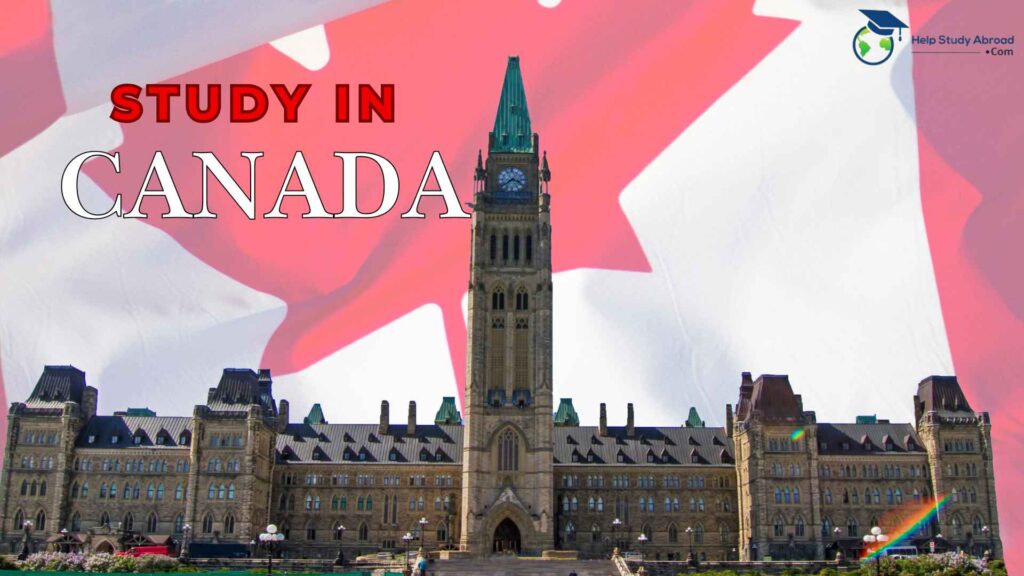Why Study in Australia
Studying in Australia is a great decision for those looking to pursue their higher education abroad at reputed universities with excellent academic and research opportunities. The country is known for its diverse and multicultural community, with a large population of international students. At the same time, campus life is also vibrant to study in Australia, with loads of student clubs, associations, and other networking events to look forward to. The country also has a flourishing job market with several opportunities and openings for graduates.
The post-study work visa program also enables international students to stay back after completing their studies and work in Australia. This helps them gain experience in the job market here and eventually pursue pathways towards global careers elsewhere or apply for permanent residency. Another advantage is the country’s high quality of life along with its natural beauty and plethora of natural and historical landmarks. Getting an opportunity to explore the multifaceted wonders of Australia is one of the biggest benefits of studying here. Universities also offer abundant support to international students, helping them settle into their respective programs without any worries. Students can also work part-time while studying, which is another way to gain work experience and offset some living costs. These are some of the advantages of studying in Australia in a nutshell. Let us look at some of the top reasons in more depth below.
Top 10 Reasons to Study in Australia
Here are the 10 top reasons to study in Australia:
1. Highly-Ranked Universities
- Australia is home to 38 universities in the QS World University Rankings list for 2025.
- This tally includes 9 reputed universities like the University of Melbourne (13), University of Sydney (18), and the University of New South Wales (19) in the top-100.
- Australian universities have consistently ranked among the topmost global lists for several years in terms of education quality, reputation, and student satisfaction. These include Times Higher Education (THE), Shanghai/Academic Rankings of World Universities (ARWU), and many others.
2. Globally-Valued Qualifications & Innovative Learning Systems
- Australian qualifications are globally valued and recognized by top institutions and companies.
- They can unlock new career opportunities across sectors, since they are perceived as current and related to industry needs.
- Australian universities are also known for their emphasis on innovation-driven learning systems. They encourage students to think out of the box with groundbreaking projects and initiatives.
- Global Australian alumni include top scientists, entrepreneurs, artists, designers, and humanitarians. Researchers at universities have executed various impactful projects, including the development of the cervical cancer vaccine and the discovery of penicillin, along with Wi-Fi and the Cochlear implant.
3. Robust Educational Framework & Standards
- Australia has a recognized global education system with Government accreditation and quality control measures.
- The AQF (Australian Qualifications Framework) regulates all programs delivered by institutions. It also helps various countries recognize these qualifications and issue comparable ones.
- All courses delivered by higher education institutions should meet the stringent Government standards, while going through an intensive accreditation process.
- Regular reviews are also undertaken to ensure that all universities adhere to these standards.
- Australia also has its own laws for safeguarding the rights of international students, known as the Education Service for Overseas Students (ESOS) Act of 2000.
4. Excellent Student Support
- The Australian Government closely collaborates with educational institutions to improve the experiences of international students.
- All education providers have dedicated members of staff to supervise international student wellbeing.
- These personnel are known as international student advisers and they are available across universities for prompt support and guidance. From answering questions to providing resources, they are an immense source of strength for international students.
- There are dedicated centers and hubs for international students not just at universities, but also several towns and cities in Australia.
5. Industry-Ready Curriculum
- Australian universities offer courses and qualifications that are tailored to the needs of global employers.
- Real-world and hands-on learning is encouraged, with focus on building an entrepreneurial mindset.
- Courses will also help you build necessary soft skills for the job market, including critical thinking, problem-solving, communication, and teamwork.
- The course content and methods of teaching go through regular updates to stay industry-relevant while being integrated with work placements and internships in several cases.
- Universities often have industry leaders and experts working as guest lecturers for diverse courses and areas of study.
- Many courses have work-integrated learning modules with industry-partnered academic projects, placements, practicums, etc.
6. Multicultural and Inclusive Community
- Australia is popular among international students for its diverse and welcoming local communities.
- The country is known for its multicultural atmosphere, with 1/3rd of the current population born abroad. 23% of Australians also speak languages other than English.
- Half a million and more international students across 192 nations study in Australia, creating a more conducive environment to settle in right away.
- There are welcome services for students at every Australian international airport along with other facilities to help you quickly integrate into your new environment.
7. High Safety Standards
- Australia has a global reputation for being a safe place to pursue higher education.
- The country encourages people to follow and respect the rights and religious choices of others. You can safely practice your faith with laws to safeguard your choices.
- Australia is one of the most politically stable countries worldwide, with its leaders elected through a fair process.
- Australian towns and cities have some of the world’s lowest crime rates, with ample safety across public spaces and streets.
- On-campus safety is one of the best in the region.
8. Excellent Living Standards
- The country offers high living standards with its twin pillars of high-quality education, a skilled workforce, and innovation-driven society.
- Australia ensures top-class transportation, healthcare, Government services, and infrastructure, which are all higher than global averages.
- There are stringent laws to safeguard the green and clean environments across the country, ensuring a healthy lifestyle for all citizens.
9. Reasonable Living Costs & Part-Time Work Opportunities
- Tuition fees and living costs for international students are comparatively reasonable for international students.
- There are rentals available on a sharing basis along with convenient homestays for more affordable accommodation.
- Students can work part-time while studying in Australia without separately applying for work visas. This helps them offset a part of their living costs.
10. Post-Study Work Opportunities
- The Post-Higher Education Work Stream visa is for international students graduating in the country. They can live, study, and work in the country temporarily with the same.
- The duration of this visa is usually 2-3 years, depending on the qualification and you can also bring your family members to the country under the same.
- Processing times are usually swift and the costs range around AUD 1,945 only.
- You have to meet the character, English proficiency, visa, health insurance, and other requirements to apply. You should also have obtained a recent degree from a CRICOS-registered course.
(Begin your Australia study journey
- Guidance with student visa and scholarships
- Free support for applications
- End-to-end counseling and assistance)
Study in Australia Frequently Asked Questions (FAQ)
- How much does it cost to study in Australia?
The average tuition costs vary as per the course and institution. They may range between AUD 20-50,000 annually for bachelor’s courses and AUD 22-54,000 yearly for master’s programs.
- How to get PR in Australia?
You may obtain permanent residency (PR) in Australia by applying for the permanent visa. It will enable staying indefinitely in the country with some visa options including family visas and skilled work visas.
- Which course is best for Australia?
Some of the top courses to pursue in Australia include architecture, accountancy, engineering, earth sciences, and computer sciences and information technology.
- Which skills are in-demand in Australia?
Some of the top in-demand skills in Australia include AI and machine learning, nursing and healthcare, project management, finance, and construction engineering.
- How much money can I carry to Australia as a student?
There are no physical currency limits for Australia, although you should report $10,000 or higher in Australian dollars (or foreign currency equivalent) while departing.
Final Take Away
Studying in Australia is an excellent option if you wish to pursue higher education in a safe and multicultural country with reputed universities. From multiple course options to global career opportunities, Australia offers excellent prospects for all international students.



